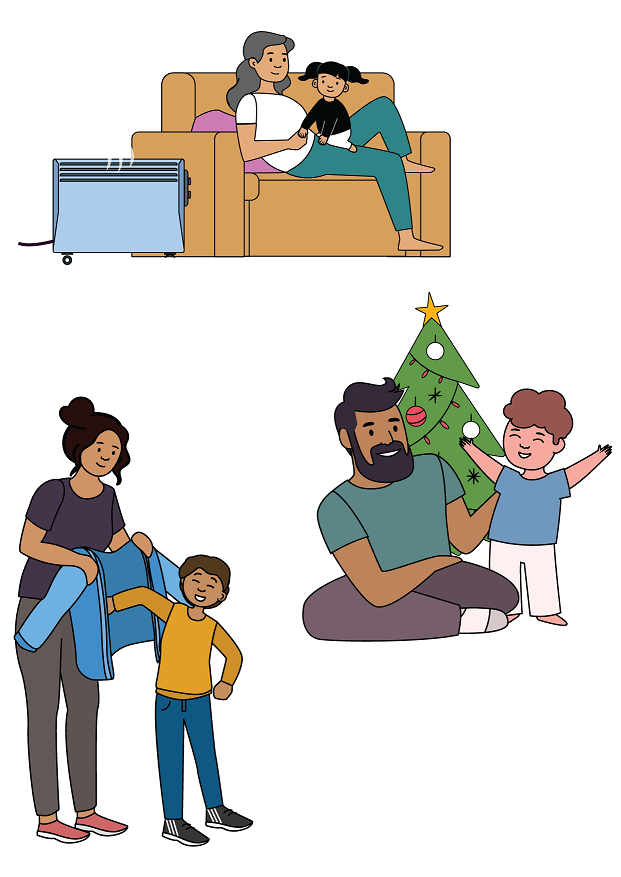Supporting whānau to care for their own
Published: September 23, 2020
A number of changes have been introduced to make it easier for whānau caregivers to access financial support.
Majority of caregivers look after whānau
In New Zealand, there are around 14,000 caregivers caring for 22,000 children and young people who for a range of reasons are unable to be cared for by their birth parents.
More than 10,000 of these caregivers are caring for children outside of the State care system and are entitled to the Unsupported Children’s Benefit or Orphan’s Benefit. The majority are caring for children from their extended family or whānau, and play a critical role in reducing the need for children to come into State care.
The remainder receive the Foster Care Allowance from Oranga Tamariki as they care for children and young people who are in State care.
Discrepancies between payments
“Historically, caregivers caring for children and young people outside the State care system have received less financial support than Oranga Tamariki caregivers,” says Trish Langridge, Deputy Chief Executive Care Services at Oranga Tamariki.
This inequity means some children and young people have their needs better met in State care. It has also disproportionately affected tamariki and rangatahi Māori and their whānau.
“When we established Oranga Tamariki in 2017, we heard from grandparents, caregiver advocates, and Treaty Partners who were really concerned about this inequity, as well as the inadequacy of the payments to cover the costs of caring for a child,” says Trish.
“Caregivers told us they felt they had no choice but to support tamariki or rangatahi from their own whānau to come into the care of the State, so they could access better financial support through the Foster Care Allowance. We knew this had to change.”
Addressing inequities
A number of changes have been introduced to help address this inequity and make it easier for whānau caregivers to access the financial support they need.
“The first was when the Clothing Allowance was made available for children on the Orphan’s Benefit and Unsupported Children’s Benefit at the same rate as the Foster Care Allowance,” says Trish.
“Then in 2018, the Orphan’s Benefit, Unsupported Children’s Benefit and Foster Care Allowance increased by $20.31 a week as part of the Families Package. Many caregivers also benefited from the Winter Energy Payment, Best Start tax credit, and changes to Working for Families tax credits.”
The Government made further changes following a comprehensive review of the caregiver payment system in 2019.
Picking up the pace of change
“In the 2020 Budget some important funding initiatives were announced. The first was that the Unsupported Child’s Benefit, Orphan’s Benefit and Foster Care Allowance increased by $25 a week per child to help with the financial impacts of COVID-19.”
Two of the other initiatives were designed especially for caregivers receiving the Unsupported Child’s Benefit and Orphan’s Benefit.
A legislative process was started to make the Birthday and Christmas Allowances available to all caregivers receiving the Unsupported Children’s Benefit and Orphan’s Benefit, and to extend eligibility for the two benefits to caregivers who provide care for less than 12 months.
“Caregivers often take on the care of a child in difficult or uncertain situations where there is little other choice, and until now they were not able to access financial support unless they were likely to be the child’s caregiver for at least 12 months,” says Trish.
“The Birthday and Christmas Allowances are really important for making sure children feel they are part of the family and have the same experiences as other children. Until this year only caregivers receiving the Foster Care Allowance were entitled to them.”
Further changes still to come
“We’re committed to doing everything we can to better support all of New Zealand’s whānau caregivers, as we know it’s best when children and young people are in the care of their extended family, whānau, hapū or iwi,” says Trish.
“There will always be a need for non-kin caregivers, and we’re also working really hard to make sure they get the support they need while they have children in their care.”
Better support for Oranga Tamariki caregivers
Since 2017, Oranga Tamariki caregivers receiving the Foster Care Allowance have also benefited from a number of new initiatives.
“Oranga Tamariki caregivers care for children from very challenging backgrounds and often need extra support to manage behaviour and other issues,” says Trish.
The new initiatives include a dedicated caregiver support service, the introduction of Caregiver Support Plans under the new National Care Standards, improved training and learning opportunities, and access to free counselling and a free call caregiver support line.
“Oranga Tamariki also provides funding to Caring Families Aotearoa who offer a range of support and training opportunities for all caregivers, including those who receive the Unsupported Children’s Benefit and Orphan’s Benefit.”
Summary of changes
 2017
2017
- Clothing allowance made available for children on the Orphan’s Benefit and Unsupported Child’s Benefit at same rate as Foster Care Allowance.
2018
- Orphan’s Benefit, Unsupported Child’s Benefit and Foster Care Allowance increased by $20.31.
- Caregivers benefited from Winter Energy Payment, Best Start tax credit, changes to Working for Families tax credits.
2020
- Unsupported Child’s Benefit, Orphan’s Benefit and Foster Care Allowance increased by $25 a week per child.
- Process initiated to:
- Extend Birthday and Christmas Allowances to the Orphan’s Benefit and Unsupported Child’s Benefit.
- Extend eligibility for the Orphan's Benefit and Unsupported Child's Benefit to caregivers who provide care for less than 12 months.
- Paid respite extended to 20 days for caregivers receiving the Foster Care Allowance.

